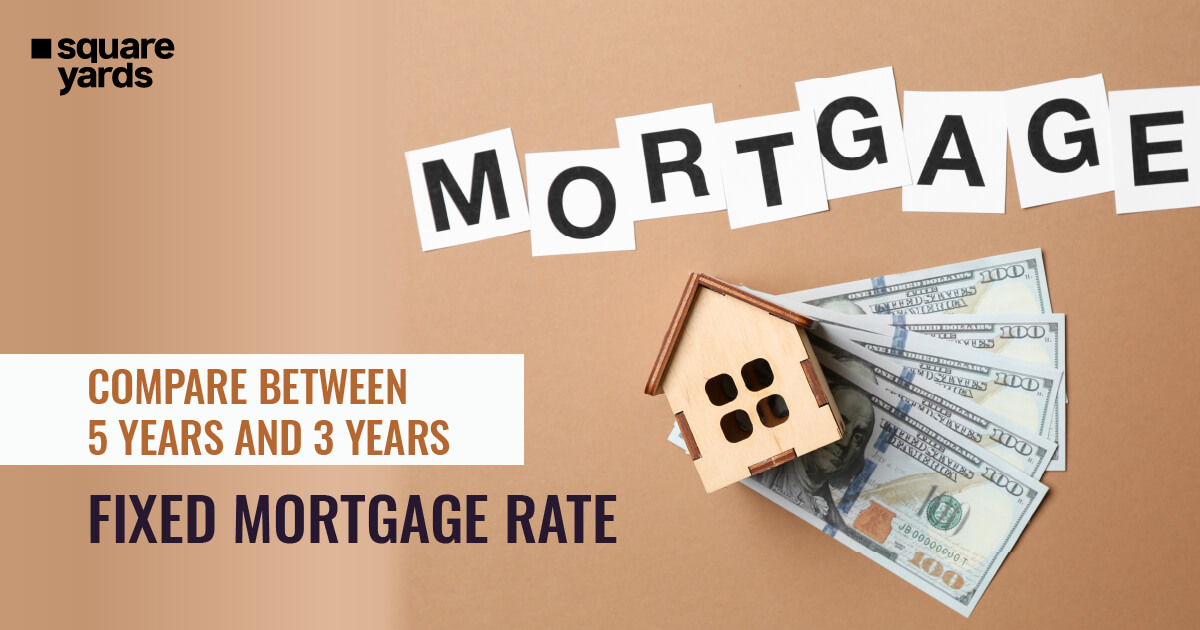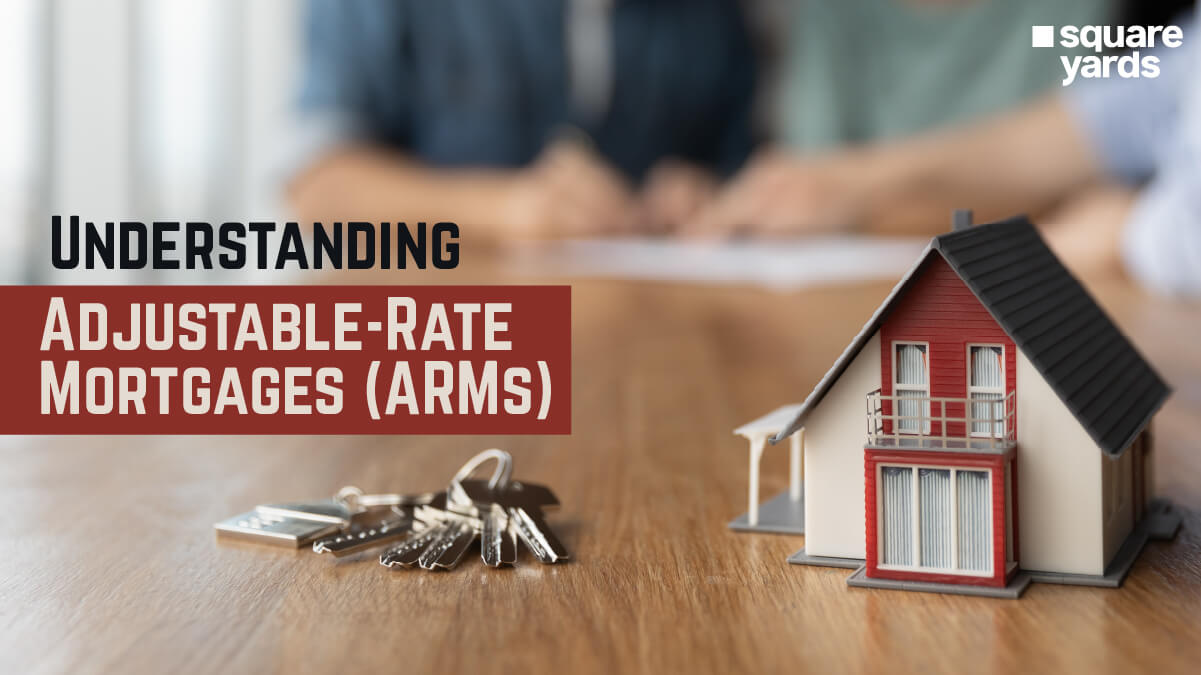Navigating the complexity of mortgage options can feel exhausting for many Canadian homebuyers. Among the choices, deciding between a 3 year fixed mortgage rates and a 5 year fixed mortgage rates often leaves borrowers scratching their heads. But don’t worry because you have our back with such problem-solving insights. Let us read and learn from each section to find the right way to function before processing a mortgage.
Drawing the Line of Differences Between Fixed and Variable Mortgages
Regarding mortgages, the decision often boils down to choosing between fixed and variable rates. Fixed-rate mortgages offer stability with unchanging interest rates for a specified term, while variable rates can fluctuate with market changes. Fixed-rate mortgages offer stable monthly payments, providing financial security amid market fluctuations. On the other hand, variable-rate mortgages can bring savings if interest rates decrease but expose borrowers to potential payment increases if rates rise.
Fixed-rate mortgages are a popular choice for those seeking predictability and stability. Within the fixed-rate category, the duration of the term becomes a key consideration, with options typically ranging from 1 to 10 years. The 3-year and 5 year fixed mortgage rates, in particular, warrant closer inspection due to their distinctive features. If you are seeking predictability and peace of mind, a fixed-rate mortgage may be the preferred choice.
Analysis On a 5-Year Fixed Rate Mortgage
A 5 year fixed mortgage rates provides a longer period of stability than its 3-year counterpart. This option appeals to those who value consistency in their monthly payments and seek to shield themselves from short-term market fluctuations.
Pros of a 5 Year Fixed Mortgage Rates
-
- Long-Term Stability: With a 5-year term, borrowers enjoy a longer period of predictable monthly payments, which provides financial stability.
- Less Frequent Renegotiations: The longer duration means less frequent need for mortgage renegotiations, reducing the time and effort involved in the process.
- Protection Against Interest Rate Increases: Choosing a 5-year term can safeguard you from potential interest rate hikes soon, offering peace of mind.
Cons of a 5-Year Fixed Rate Mortgage
-
- Higher Interest Rates: Generally, 5 year fixed mortgage rates come with slightly higher interest rates than 3-year terms. However, this difference may be worth the stability for some borrowers.
- Higher Penalties: If circumstances require breaking the mortgage early, the penalties can be higher than a 3-year term.
In contrast, let’s explore the more conventional and widely chosen 3-year fixed-rate mortgage.
The Appeal of a 3 Year Fixed Mortgage Rates
A 3-year fixed-rate mortgage might not be as popular as its 5-year counterpart, but it has gained traction among Canadian borrowers. The shorter term offers flexibility, making it an attractive option for those with uncertain plans or those predicting a drop in interest rates within 3 years.
Pros of a 3 Year Fixed Mortgage Rates
-
- Competitive Interest Rates: Historically, lenders have offered slightly lower rates on shorter-term mortgages than 5-year mortgages. However, this relationship has inverted as money markets expect inflationary pressures to subside over the longer term. Every lender’s discount is different, so it’s recommended that borrowers shop around when they come up for renewal before accepting their lender’s first offer.
- Flexibility: With a shorter commitment, you can reassess your financial situation and adjust your mortgage terms more frequently.
- Lower Penalties: If you need to break your mortgage early, the penalties associated with a 3-year fixed mortgage term are typically lower than for longer-term mortgages. This lower penalty allows you to take advantage of sudden life changes, other financial opportunities, or changes in your financial situation.
Cons of a 3 Year Fixed Mortgage Rates
-
- Less Stability: The shorter term means more frequent exposure to interest rate fluctuations. Many lenders do not offer a discount from their posted rates at renewal time, and this is why you must shop around!
- More Frequent Renegotiations: A 3-year term requires you to renegotiate your mortgage more often, which can be time-consuming and potentially costly.
- Uncertain Future Payments: If market rates rise upon renewal, you could face payment shock with higher mortgage payments.
Deciding on a 3-year fixed-rate mortgage involves weighing these pros and cons against your specific financial circumstances. If the prospect of lower interest rates in the short term and increased flexibility aligns with your goals, a 3-year term might be the right choice.
Understanding the Basics: 3-Year vs. 5-Year Mortgages

The primary distinction lies in the duration of the fixed-rate period. A 5-year fixed-rate mortgage offers stability and predictability. This could be the right choice for those seeking long-term assurance in their mortgage payments. Conversely, a 3-year fixed-rate mortgage provides more flexibility and the potential to benefit from lower interest rates sooner, especially if market conditions are favourable.
Navigating Market Fluctuations
It is crucial to acknowledge the dynamic nature of mortgage rates, influenced by the Canadian and US economies and their central banks. These rates can fluctuate rapidly and unpredictably. To make an informed decision, consider consulting a knowledgeable mortgage expert. A licensed mortgage expert is pivotal in helping you navigate the market and choose the mortgage product that aligns with your needs. They can assist in comparing rates from various lenders, ensuring you secure the best deal available.
Directly approaching a lender, such as Nesto, who advertises the lowest rates on their website, can be advantageous. This approach bypasses intermediaries, preventing additional fees and potential conflicts of interest. Dealing directly with a lender ensures transparency in your mortgage process without the influence of middle salespersons steering you towards specific products for their gain.
The Role of a Mortgage Expert
A licensed mortgage expert acts as your ally in the intricate world of mortgages. They analyse your financial situation, understand your goals, and guide you towards a mortgage solution that suits your unique circumstances. The ability to compare rates across different lenders ensures you are well-informed about the options available.
Additionally, mortgage experts can decipher the fine print and help you comprehend the terms and conditions associated with each mortgage option. This level of expertise is invaluable, especially when considering a mortgage’s long-term commitment.
Spoiling The Facts About 3-Year Versus 5-Year Mortgages
To understand the implications of your decision better, let’s think of hypothetical scenarios based on an insured 3-year fixed mortgage rate of 5.74% and an insured 5-year fixed mortgage rate of 5.34%, as advertised on Nesto’s website on August 31, 2023. We will use a $350,000 original mortgage balance with a 25-year amortisation.
Scenario 1: Rates Drop by 1% in Year 4
In this scenario, if market interest rates drop by 1% in the 4th year and remain constant in the 5th year, opting for a 3-year term allows you to lock in at a lower rate of 4.74%. This choice results in total savings of $3,578 over the 4th and 5th years compared to the 5-year rate, leaving you with a mortgage balance of $292,890 at the end of 5 years. While flexibility is a benefit of choosing a shorter term, the 5-year term guarantees $334 in savings, highlighting the potential risks of a shorter-term commitment.
Scenario 2: Rates Drop by 1.75% in Year 4
In the second scenario, with a substantial 1.75% drop in rates during the 4th year, you could lock in at 3.99% after 3 years, potentially saving $8,051 over the 4th and 5th years compared to the 5-year rate. This decision would result in a mortgage balance of $292,890 at the end of 5 years. While the 5-year rate offers guaranteed savings of $3,913, the flexibility of a 3-year term initially might lead to a potential cost savings of $4,139.
Scenario 3: Rates Remain the Same Through End of Term
In a scenario where rates remain constant throughout the 5-year term, locking into the same 5.74% rate after 3 years produces total savings of $2,386 over the 4th and 5th years on the 5-year rate over the 3-year rate. This results in a mortgage balance of $292,890 at the end of 5 years. Here, the 5-year rate guarantees savings of $6,298, emphasising the stability it offers when rates stay the same.
Scenario 4: Rates Increase by 1% in Year 4
In the final scenario, if rates increase by 1% in the 4th year and remain constant in the 5th year, locking into a higher rate after 3 years would lead to total savings of $8,349 over the 4th and 5th years on the 5-year rate compared to the 3-year rate. This results in a mortgage balance of $292,890 at the end of 5 years.
End Thoughts
The choice between a 3-year and a 5-year fixed-rate mortgage is not a one-size-fits-all scenario. It’s a decision influenced by your financial aspirations and the ever-changing economic landscape. By consulting with a mortgage expert and staying attuned to market conditions, you can navigate this decision successfully and embark on a mortgage journey tailored to your needs.
You May Also Read
|
Guide To Canada Mortgage Approval |
|
|
Know Pine Mortgage in Canada |
|
|
All About Mortgage Payment Shock |
|
|
Understand Mortgage Prepayment Penalty |
Frequently Asked Questions (FAQs)
Choosing between a 3-year and a 5-year mortgage depends on your preference for stability or flexibility. Opt for a 5-year fixed-rate mortgage for stability, while a 3-year term offers flexibility and potential benefits from lower rates sooner.
In times of rising interest rates, a 5-year fixed-rate mortgage provides protection and stability, shielding you from fluctuations in the market. It offers a secure financial path during periods of economic uncertainty.
A 3-year fixed-rate mortgage can be advantageous during falling interest rates. It allows you to benefit sooner from lower rates, providing flexibility to adapt to changing market conditions and potentially saving on interest payments. Is getting a 3-year- or 5-year mortgage better?
Which mortgage term length is better when interest rates increase?
Which mortgage term length is better when interest rates decrease?











